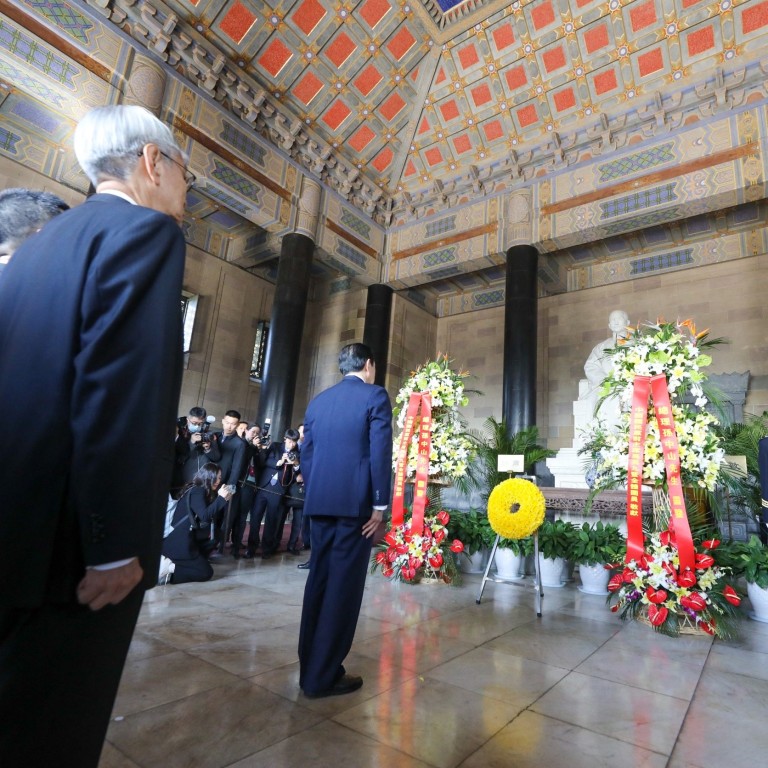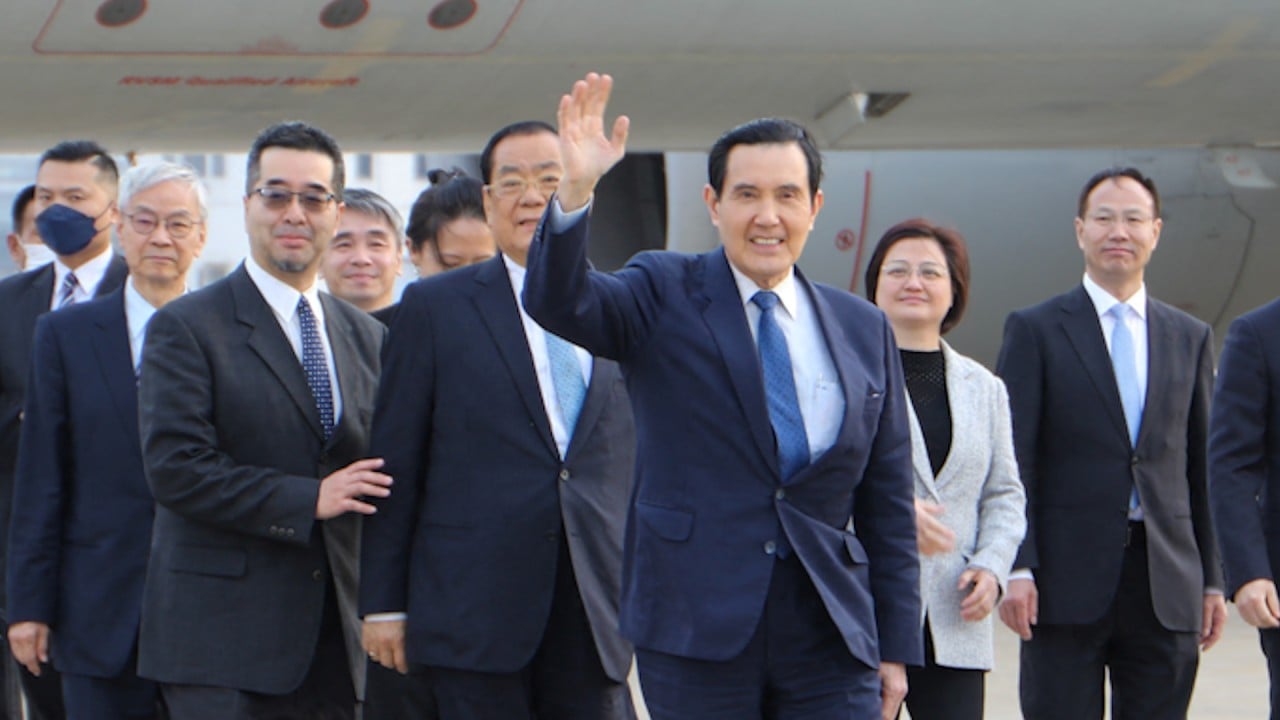
Look to Sun Yat-sen, Taiwan’s Ma Ying-jeou urges on landmark mainland China trip
- Ma pays tribute in Nanjing to the founder of ‘the Republic of China’ amid accusations that he is selling out the island
- The former Taiwanese president is the first to cross the Taiwan Strait in more than seven decades
Former Taiwanese president Ma Ying-jeou has called on the two sides of the Taiwan Strait to avoid war and look to the lofty ideals of the late Sun Yat-sen in founding Asia’s first republic.
He said he and his group would follow Sun’s spirit in striving hard to “pursue peace, avoid war and achieve revitalisation of the Chinese race”.
“This is the shared responsibility of the people across the strait and something that must be realised,” he added.
Ma arrived in Shanghai with a group of 30 Taiwanese students on Monday and went straight to Nanjing. His visit, the first by a retired Taiwanese president to the mainland since 1949, will take him to five mainland cities but will not include Beijing.
He later said he invited the university students along on his trip to give them a more thorough understanding of Sun’s work, the modern history of China as well as cross-strait relations.
“I hope young people of the two sides are able to understand … that the two sides must pursue peace or there will be no future for each other,” he said, adding he was excited to visit Sun’s mausoleum as he had been a great admirer of the late founder since childhood.
Asked about his treatment since his arrival on Monday, Ma said that so far he had found the arrangements and receptions for him “very satisfactory”, and that his visit had been greeted enthusiastically by the people he had met.
One analyst said Ma’s speech was carefully worded to counter accusations by the island’s pro-independence camp that his trip sold out and belittled the island.
“His spelling out of the official ROC title in public and that the ROC had existed for 112 years should in some way curtail accusations that he would betray Taiwanese interests on his mainland trip,” said Li Da-jung, a professor of international relations and strategic studies at Tamkang University in New Taipei.
The government and the pro-independence camp in Taiwan are closely watching Ma’s mainland trip – from the former president’s comments, to the protocol given to him and the levels of officials he will meet – amid concerns that Beijing is using Ma as a political tool in a “united front” ploy against the self-ruled island.
On Monday, the ruling, independence-leaning Democratic Progressive Party said the mainland had rolled out the red carpet for other former Kuomintang leaders like Lien Chan but not for Ma.
Ma was received by Chen Yuanfeng, deputy director of the mainland’s Taiwan Affairs Office, instead of TAO director Song Tao.
Ancestral trip or political ploy? Ma Ying-jeou to visit mainland China
Taiwanese Vice-Premier Chen Chien-jen called on Beijing to recognise Ma with the protocol of an ex-president to uphold mutual respect and dignity between the two sides.
Mainland China and Taiwan split in 1949 at the end of a civil war when the KMT was defeated by Communist Party forces and fled to Taipei.
Beijing sees the island as part of China and has never ruled out the use of force to take control of it. Most countries, including the United States, do not recognise Taiwan as an independent state. Washington, however, opposes any attempt to take the island by force.


